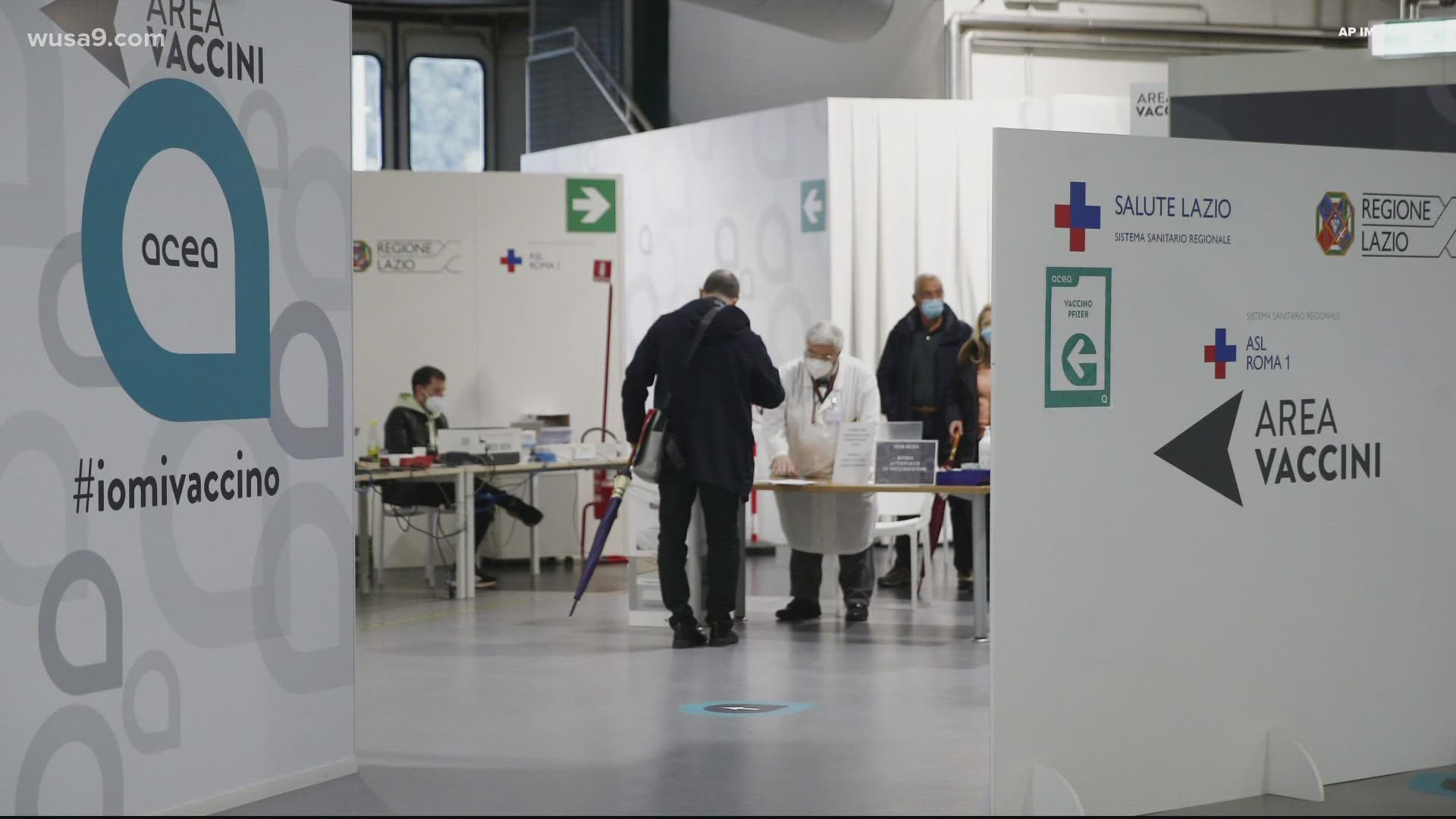WASHINGTON — Is omicron variant of the coronavirus considered a variant of concern? Every hour we find out new information about this latest mutation of COVID-19. As of this report, the World Health Organization (WHO) has labeled Omicron a variant of concern.
However, the Centers for Disease Control and Prevention (CDC) has not.
Which leads to the question: What is a variant of concern?
QUESTION:
What does it mean to be a variant of concern?
OUR SOURCES:
ANSWER:
A virus variant must posses at least one of three properties to be considered a variant concern.
WHAT WE FOUND:
Both the CDC and the WHO rank virus variants in several categories: Variant being monitored, variants of interest and variants of concern.
The CDC does have a 4th category: variants of high consequence.
“A variant of concern is the top classification used by the World Health Organization,” Dr. Moss explained.
We sat down with Dr. Moss to verify what separates variants of concern from the others.
“It’s a variant that has one or more of three properties,” he said.
Dr. Moss said the three properties are:
- More transmissible than standard or dominant variant
- More likely to cause severe disease
- Can escape public health measures.
According to the WHO, omicron has at least two of these properties. Which makes it now a variant of concern.
“Based on the fact that [the WHO] thinks that there are many mutations there that could change the behavior of the virus,” Dr. Adalja said.
However, as of this report, omicron has not been found in the U.S. As a result, the CDC has not made the move to change its designation from variant of interest to variant of concern.
Even if we haven’t seen omicron yet in the U.S., that doesn’t mean the variant isn’t already here. It just hasn’t shown up in any positive tests yet.
Sign up for the Get Up DC newsletter: Your forecast. Your commute. Your news.
Sign up for the Capitol Breach email newsletter, delivering the latest breaking news and a roundup of the investigation into the Capitol Riots on January 6, 2021.

